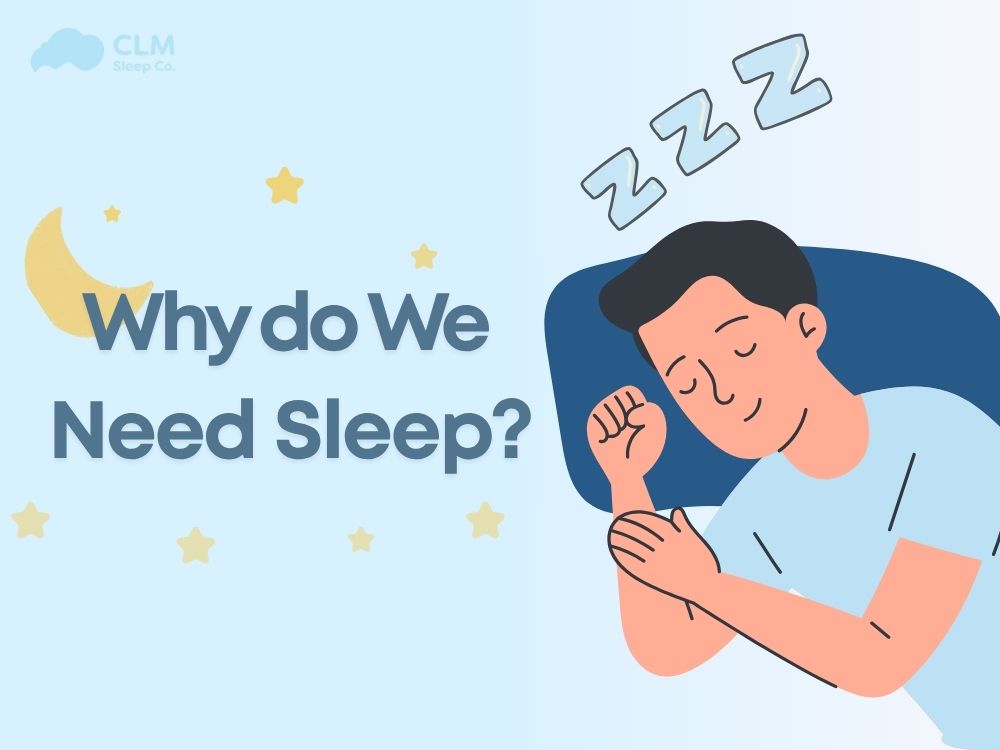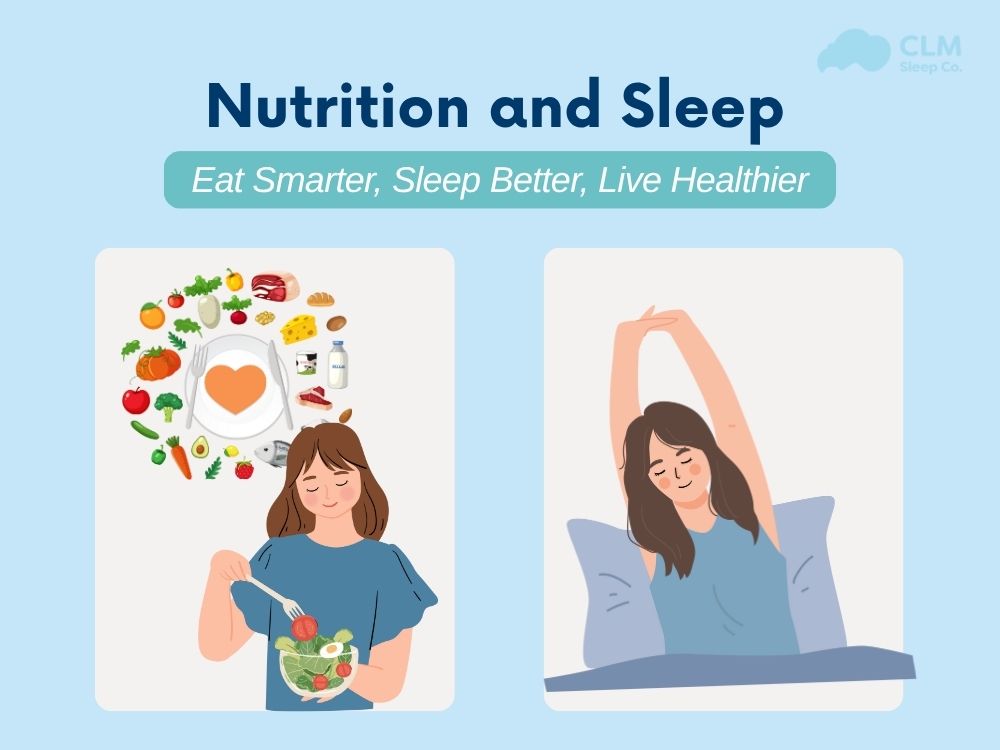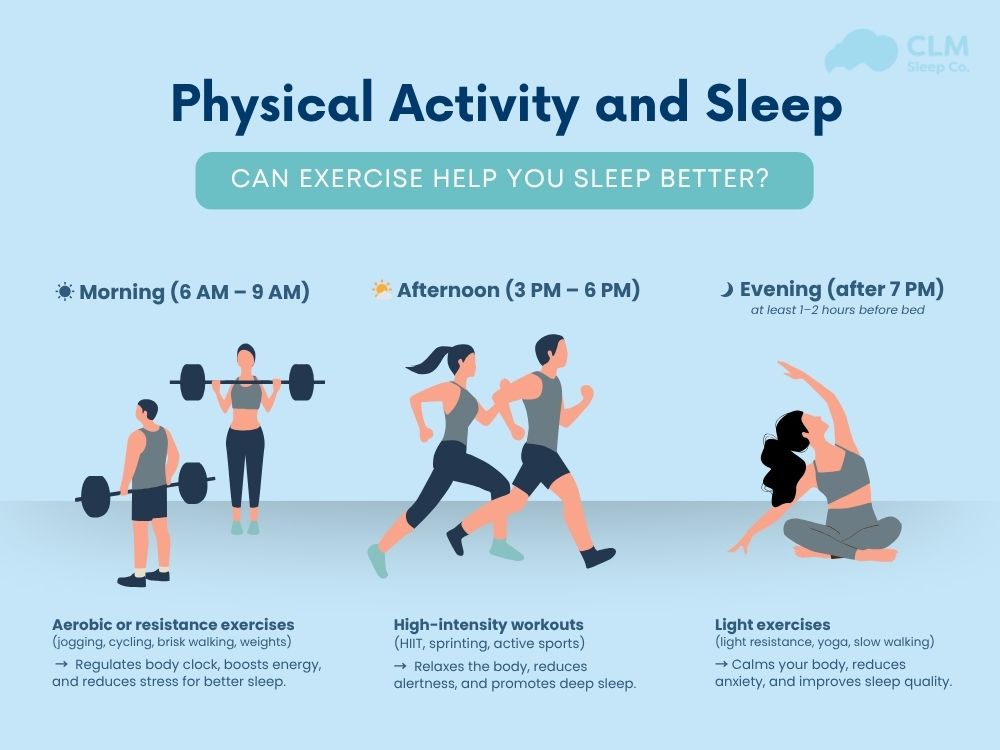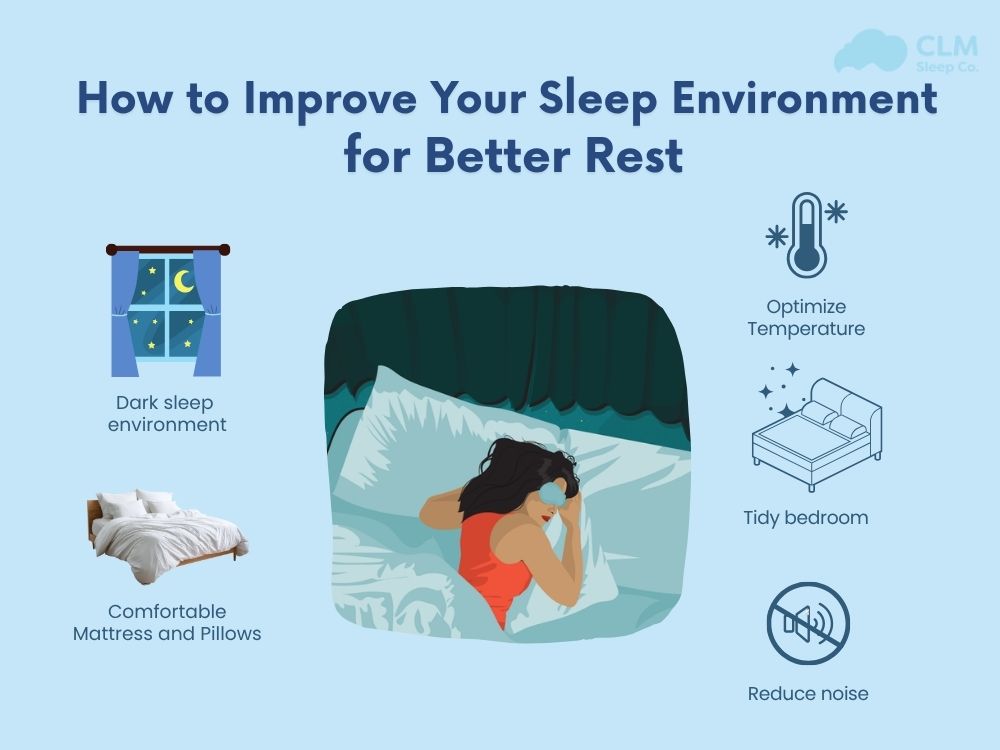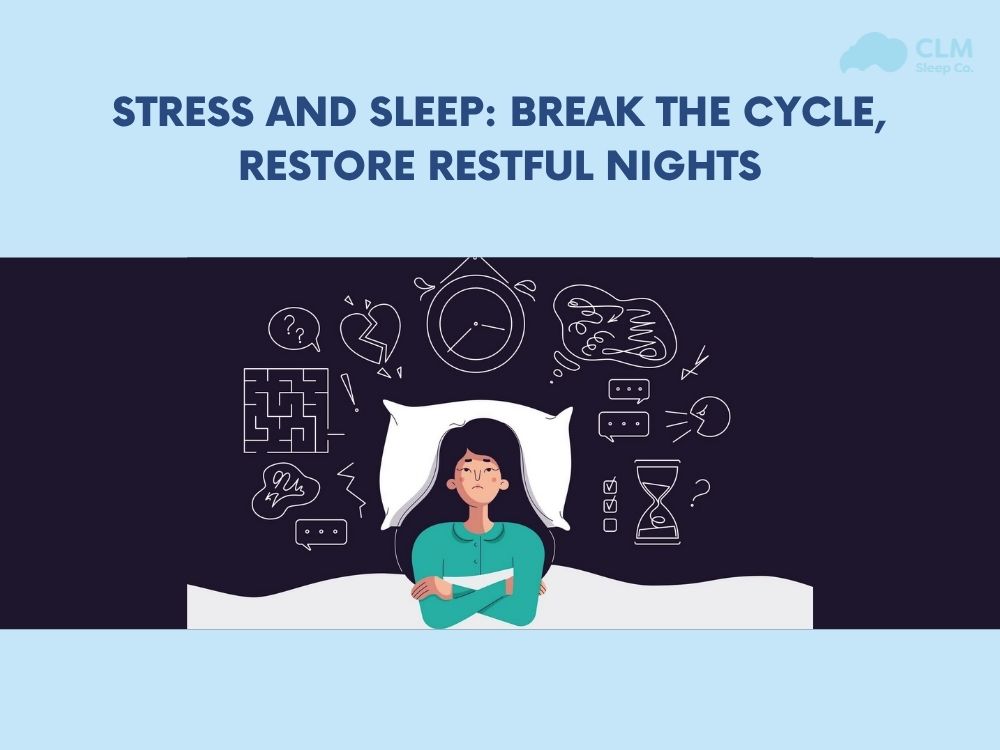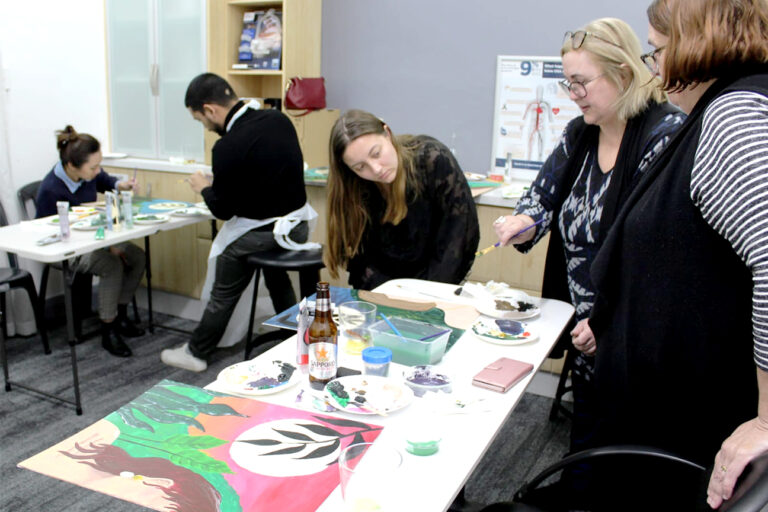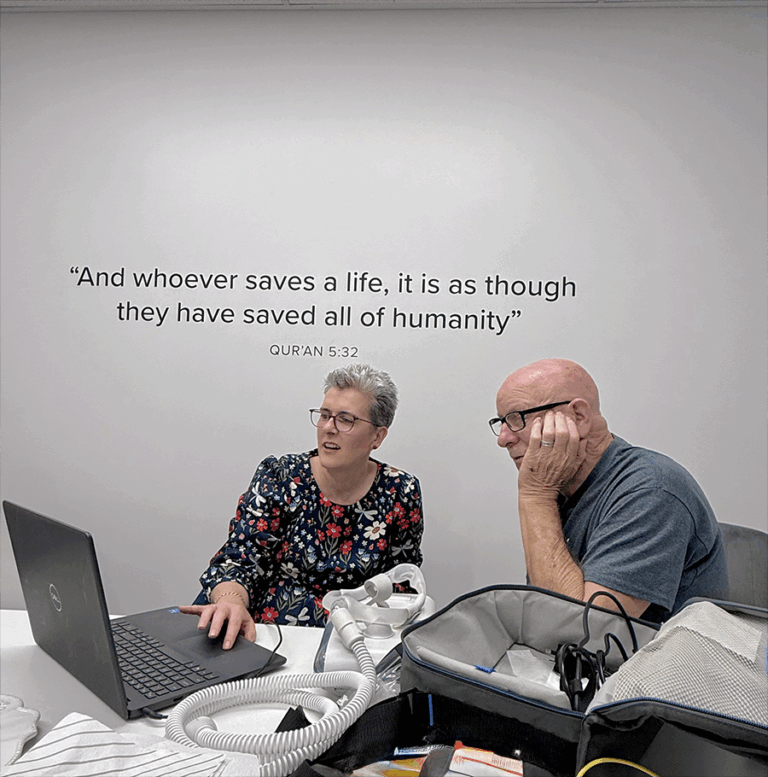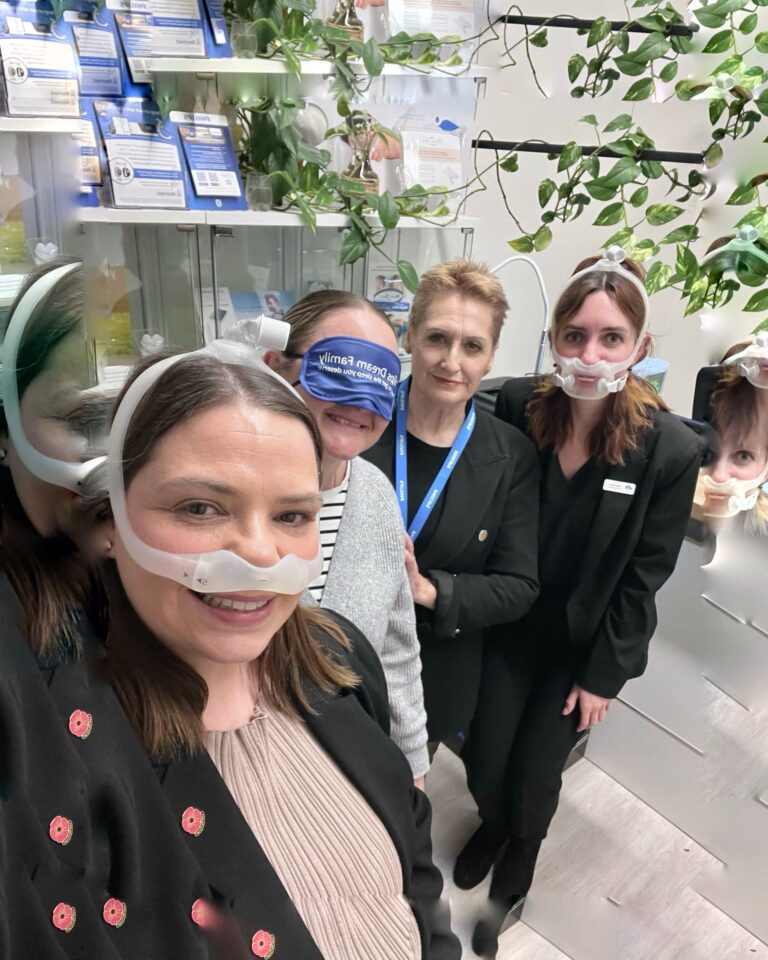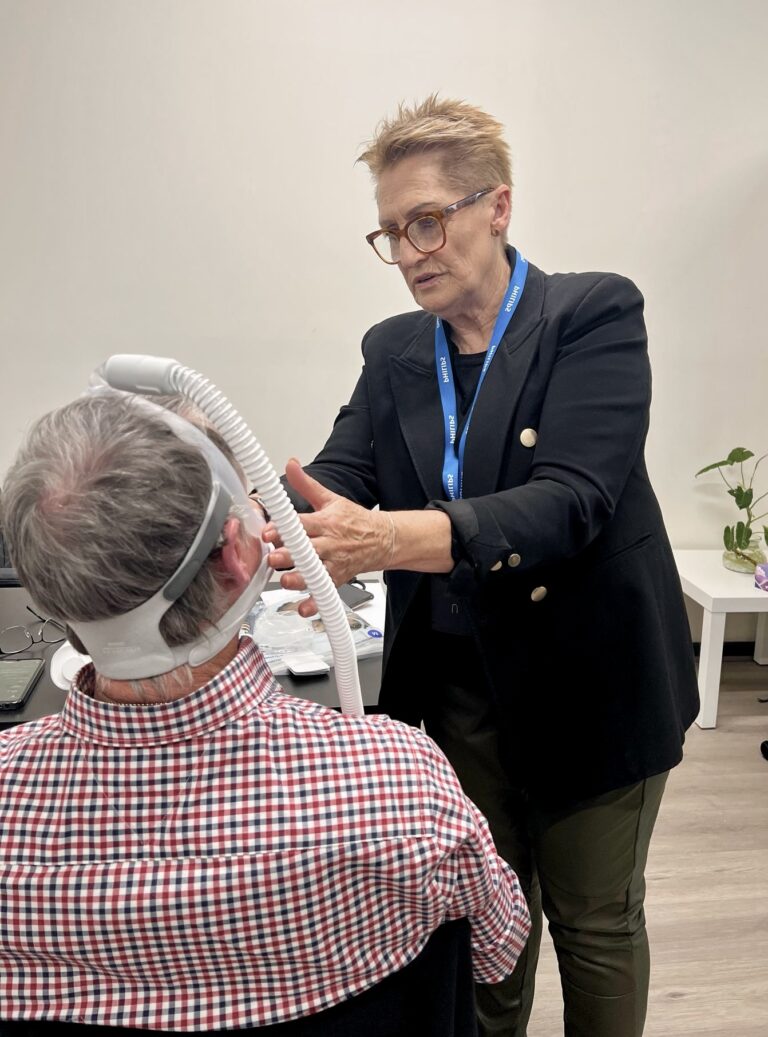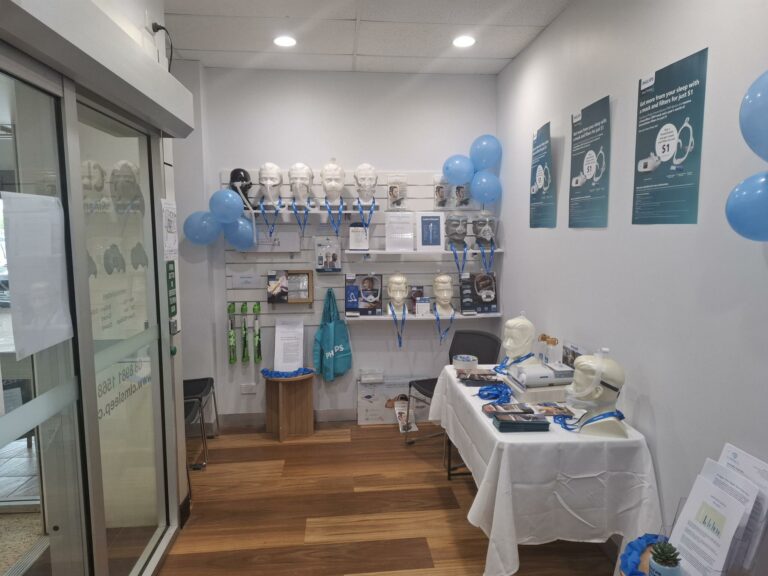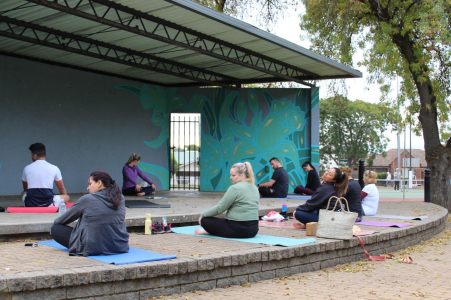Have you ever wondered why do we need sleep? Sleep is much more than just a break from our busy day, it plays a vital role in maintaining both our physical and mental health. Getting enough rest allows our brain to process information, our body to repair itself, and hormones to stay balanced for daily function. Yet, many people don’t fully understand the importance of sleep or why we require sleep in the first place. This article will explore these questions and explain what happens when we don’t get enough rest.
Why Sleep Matters
Why do we need sleep? Sleep is more than just closing your eyes at night. It is a complex biological process that allows your brain and body to reset, recharge, and recover. While you sleep, your brain organizes information, clears out toxins, and supports healthy thinking. At the same time, your body repairs cells, balances hormones, and builds energy for the day ahead.
Many scientists continue to study the deeper purposes of sleep, but one thing is clear: we need sleep to survive and thrive. From supporting memory and focus to strengthening the immune system, sleep affects nearly every part of our physical and mental health.
What Happens When We Sleep?
When you drift off to sleep, your body and brain don’t just shut down-they become surprisingly active. Each night, you cycle through four key stages of sleep, repeating this pattern 4 to 5 times during a full night. These stages fall under two main categories: non-REM sleep (stages 1–3) and REM sleep (stage 4):
- Stage 1 – N1 (Transition to sleep): This is the transition from wakefulness to sleep. Your muscles relax, heartbeat slows, and brain waves begin to change.
- Stage 2 – N2 (Light Sleep): The body enters a deeper sleep. Temperature drops, breathing becomes regular, and brain activity slows with brief bursts of electrical signals.
- Stage 3 – N3 (Deep Sleep): This is the most restorative stage. Your body repairs tissues, strengthens the immune system, and builds bone and muscle.
- Stage 4 (REM Sleep): Rapid Eye Movement sleep is where most dreaming occurs. It helps with memory consolidation, learning, and emotional processing.
How Sleep Affects the Brain
During sleep, the brain clears out waste products that build up during the day, especially in REM and deep sleep stages. It also organizes memories, strengthens neural connections, and supports learning. Without enough sleep, brain functions like focus, decision-making, and creativity decline noticeably.
Physical Repair and Recovery
Sleep is when the body does its essential maintenance. Muscle tissues rebuild, cells regenerate, and the immune system becomes more active. That’s why you feel weaker or take longer to recover when you don’t sleep well. For athletes and physically active people, deep sleep is key for physical performance.
Impact on Mental Health
Sleep and mental health are deeply connected. Poor sleep increases the risk of anxiety, depression, and mood swings. On the other hand, getting enough rest helps regulate emotions, cope with stress, and stay mentally sharp. Regular, uninterrupted sleep is one of the most natural ways to support emotional balance.
Role in Hormone Regulation and Metabolism
Sleep affects the production of critical hormones. For children and teens, growth hormone is mostly released during deep sleep, supporting brain development and muscle growth.
Hormones like melatonin control sleep-wake cycles, cortisol affects stress and energy levels, and insulin manages blood sugar. When sleep is disrupted, these hormones can become imbalanced, increasing the risk of weight gain, diabetes, and fatigue.
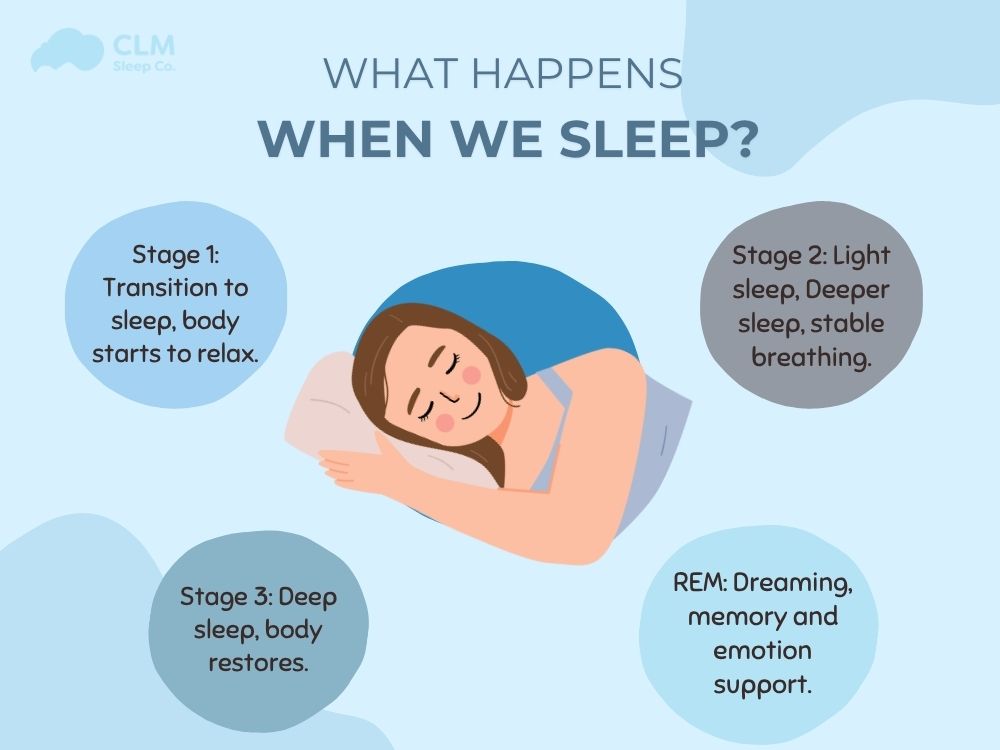
How Much Sleep Do We Need?
The amount of sleep each person needs varies with age and individual factors. According to the study ‘National Sleep Foundation’s Sleep Time Duration Recommendations’, the recommended sleep duration for different age groups is as follows
Newborns (birth to 3 months): 14 to 17 hours per day
Infants (4 to 11 months): 12 to 15 hours per day
Toddlers (1 to 2 years): 11 to 14 hours per day
Preschoolers (3 to 5 years): 10 to 13 hours per day
School-aged children (6 to 13 years): 9 to 11 hours per night
Teenagers (14 to 17 years): 8 to 10 hours per night
Young adult (18-25 years): 7 to 9 hours per night
Adults (26 to 64 years): 7 to 9 hours per night
Seniors (65 years and older): 7 to 8 hours per night
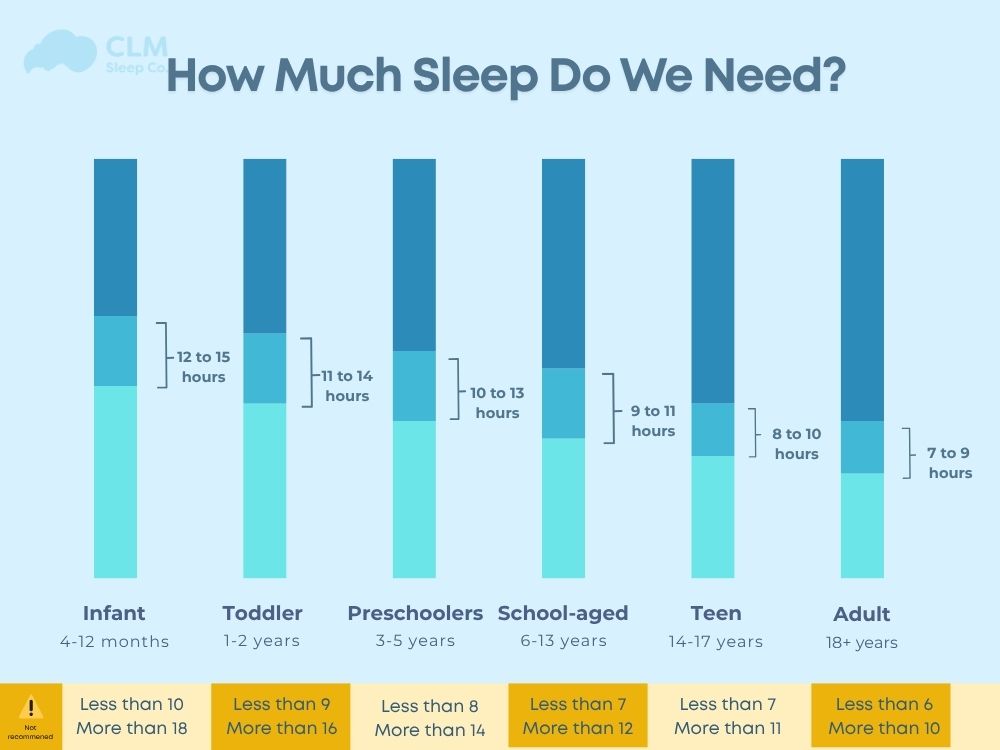
See more: How Many Hours of Sleep Do We Really Need?
What Happens If You Don’t Get Enough Sleep?
Not getting enough sleep makes it difficult for your body to work properly. Sleep deficiency is linked to a range of serious health issues, including heart problems, kidney disease, weakened immunity, and mental health disorders.
Sleep deprivation also increases the risk of accidents. For example, drowsy driving is a major cause of car crashes and fatalities. Older adults who don’t sleep well face a higher chance of falls and fractures.
Some common effects of insufficient sleep include:
- Mood swings, anxiety, and depression
- Trouble with memory, focus, and concentration
- Reduced motor skills and coordination
- Persistent fatigue
- Weakened immune response
- Weight gain and increased risk of high blood pressure
- Insulin resistance, raising the chance of diabetes
- Greater risk of chronic diseases like heart disease
- Increased likelihood of premature death
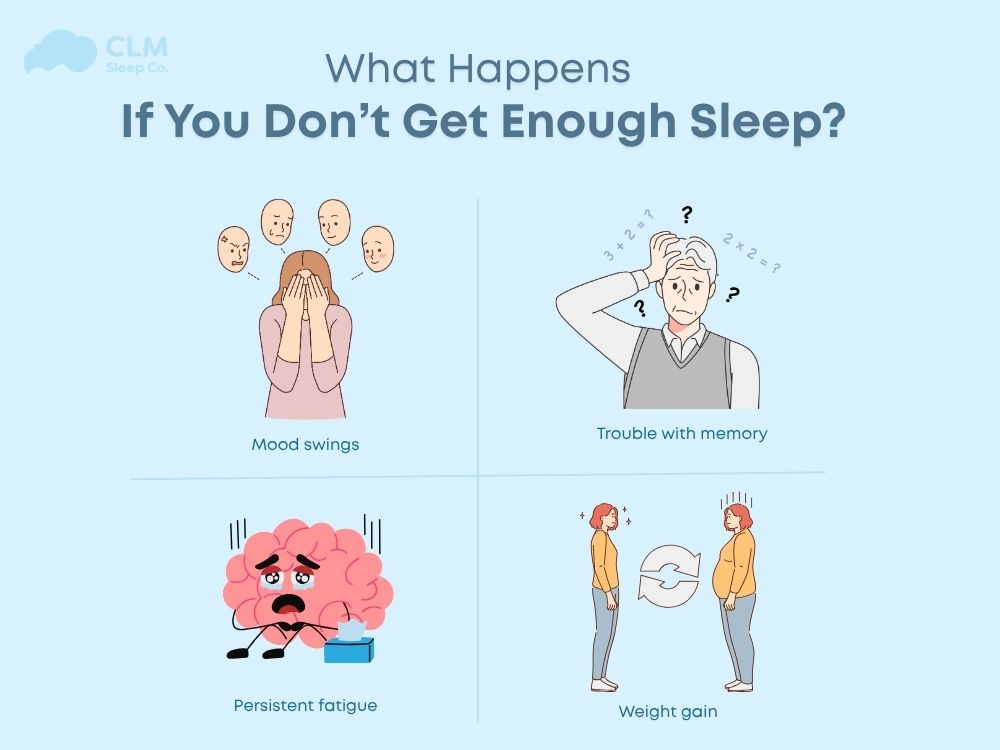
See more:
Tips for Getting Better Sleep
Improving your sleep quality can make a big difference in how you feel every day. Here are some practical tips to help you sleep better:
- Keep a consistent sleep schedule by going to bed and waking up at the same time every day, even on weekends.
Create a relaxing bedtime routine such as reading, gentle stretching, or meditation to signal your body it’s time to wind down. - Make your bedroom comfortable – keep it cool, dark, and quiet. Consider blackout curtains and white noise machines if needed.
- Limit screen time before bed. The blue light from phones and computers can interfere with melatonin production, making it harder to fall asleep.
- Avoid caffeine and heavy meals at least a few hours before bedtime to prevent disruption of your sleep cycle.
- Get regular exercise, but try not to work out too close to bedtime.
- Manage stress through mindfulness, deep breathing, or journaling to calm your mind before sleep.
- Limit naps, especially in the late afternoon or evening, to help maintain a strong sleep drive at night.
Conclusion: Sleep is Essential for Life
Sleep is essential for life – not just a break from your day, but a biological necessity. When you get enough high-quality sleep, you give your mind and body the chance to reset, recharge, and repair. Poor sleep over time can lead to weight gain, poor concentration, anxiety, and chronic illnesses like heart disease or diabetes.
At CLM Sleep, we understand why you need sleep, and we’re here to support you every step of the way. From expert-backed sleep solutions to simple bedtime routines, CLM Sleep helps you reclaim your nights and improve your overall well-being, because the importance of sleep starts with better habits tonight.
See more:
How much REM sleep should you get
Reference
1. Hirshkowitz M, Whiton K, Albert SM, Alessi C, Bruni O, DonCarlos L, et al. National Sleep Foundation’s sleep time duration recommendations: methodology and results summary. Sleep Health. 2015 Mar;1(1):40–43. doi:10.1016/j.sleh.2014.12.010.
